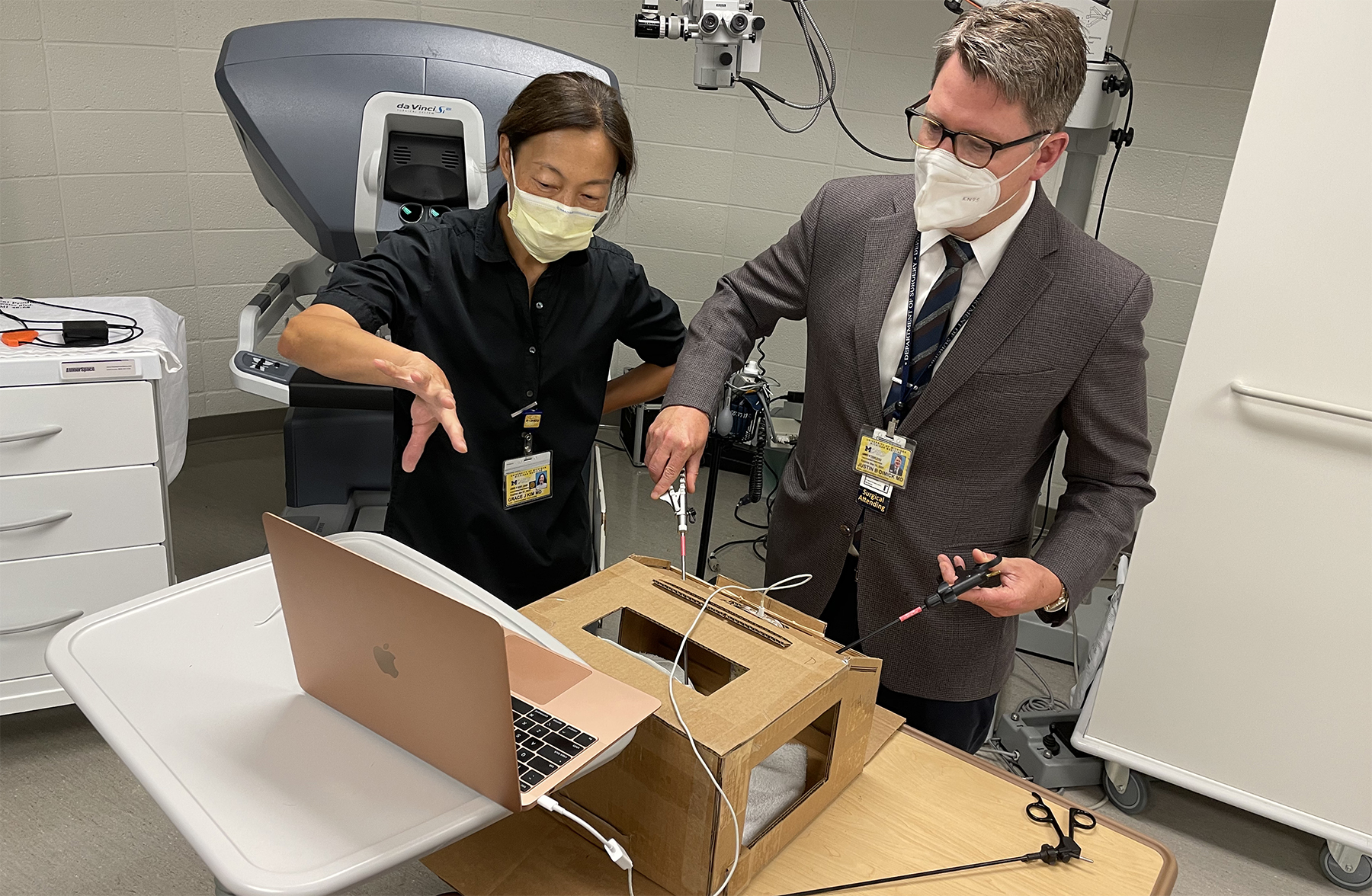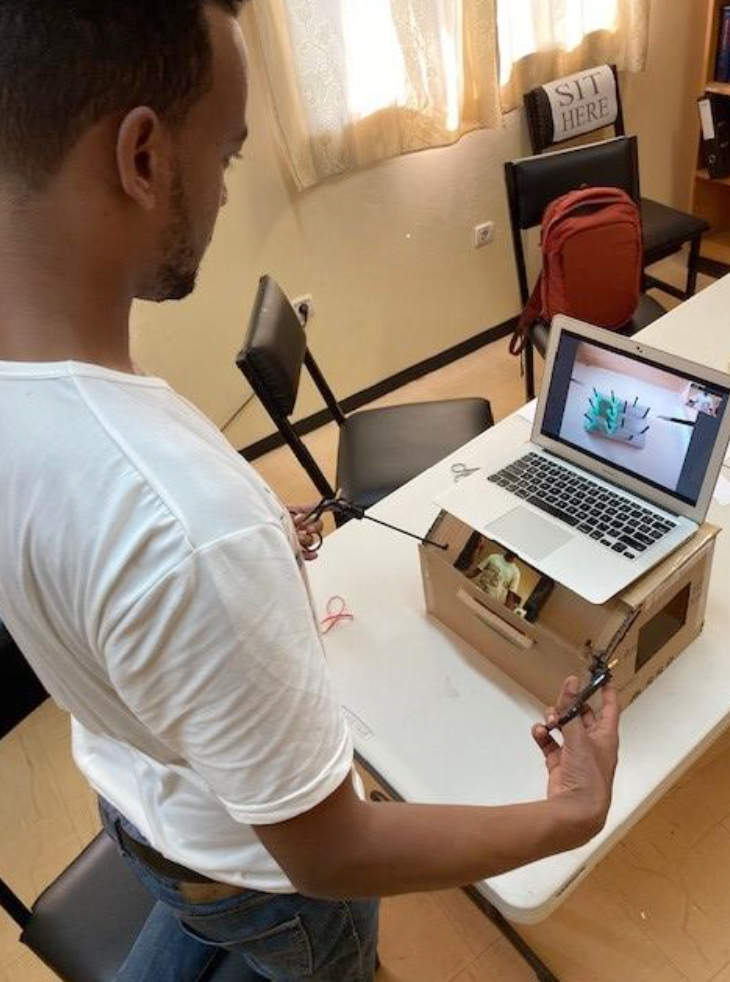
In addition to bragging rights, the recognition comes with $700,000 that the team can use to expand ALL-SAFE: a DIY laparoscopy training program that requires neither special equipment nor in-person instructors. The unique project, led by Associate Professor of Surgery Grace Kim, was named in January as the grand prize winner of the Global Surgical Training Challenge competition.
“I am incredibly proud of our team and could not have hand-picked a better group. Everyone was really committed to what we’re doing,” said Kim. “For all of us, this is something that we really believe in – bringing laparoscopy to Africa.”

The team developed low-cost simulator that learners build themselves using cardboard and detailed templates they download from the internet. Their own mobile phone serves as the camera and monitor, and open-source learning modules teach the necessary skills to master the procedures.
They started with ectopic pregnancy (ALL-SAFE stands for African Laparoscopic Learners – Safe Advancement For Ectopic pregnancy) but have since developed modules that teach appendectomy, small bowel resection, and repair of diaphragmatic penetrating injury.
The prize funding allowed the team to expedite a fifth module focusing on safe trocar placement, required for all laparoscopic procedures, which is now in development. “The nice thing is that we have a template now for these modules, so we don’t have to re-invent the wheel each time,” Kim said. “It makes it easier to keep the product sustainable.”
Each of the modules undergoes rigorous testing at cooperating partner sites in Ethiopia and Cameroonwhere surgeons build the simulation boxes, practice the skills, and, in some cases, perform—under supervision—their first laparoscopic procedures. Dr. Kim has seen the videos, submitted as part of the clinical evaluation process.
“They did a very nice job, and just watching their videos is gratifying,” Kim said. “Even if it’s just few surgeons that the project has touched so far, those are still learners who are going to continue to develop laparoscopic skills. You have to start someplace. This is how it grows.”
ALL-SAFE team members will be attending the upcoming West African College of Surgeons meeting, to be held in late-March in Togo, to tout the project.
“The big thing now is to scale and try to bring ALL-SAFE to more sites,” Kim said. “We want to make sure everyone is aware of this free resource.”
